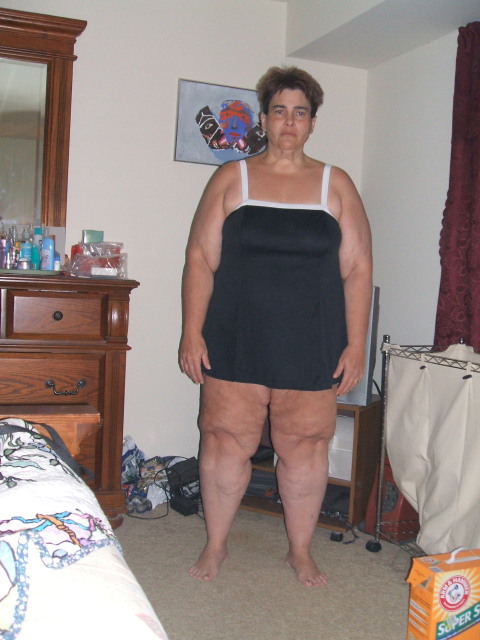Eating after VSG
Question
Dear Karla,
I had a successful sleeve gastrectomy on the 6th of july (11 days ago). I sent you a question two days ago, which you promptly answered and it was very helpful. Thanks a lot.
I still have a few concerns and I hope you can help me.
I am a bit confused as to how much I can eat. I am not really knowing when I am full, and sometimes just one extra sip makes me feel nauseous (and sometimes gives me a sharp pain in the upper back). Also I heard that I should not eat and drink at the same time. Is a creamy soup or yoghurt considered food? Or can I drink water right after it? And will this separation of liquids and solids be forever? Because I usually enjoy drinking water with my meals.
Sometimes I have a cup of soup or yoghurt and then half an hour later, I feel hungry again. Is that really hunger? I know I had major eating issues before my sleeve (mainly ate even if I wasn't hungry, just for the pleasure of it) and I really don't want to go into bad eating habits now. The first week, when I was on clear fluids, I was starving, but now that I integrated yoghurt and milk (and sometimes a bit of chocolate) into my diet, the hunger is not so bad anymore. However I thought that after the sleeve, the part of the stomach that produces ghrelin would be gone and that I would not feel hunger at all. That is not the case so far.
Could you give me an idea how much food (or liquids for now) I am supposed to be taking, and every how often? And when in your experience is it ok to integrate mashed food into the diet (doctor said 20 days post-op)
Also my doctor told me not to carry anything heavy for some time. However I have a 10 month-old baby. When do you think it's ok for me to carry her again? And when can I start going to the gym again?
Thank you so much for your precious advice!
Hi Nayla:
As to how much you can eat, it really depends on the patient. Most doctors size the sleeve with a 32 or 34 french bougie (tube)--yet even with a relatively standardized size, the amount people can eat varies. I would start with 1/4 of a cup of food--and see how it goes. If you feel fine, then add a bit more. Probably 1/2 a cup is around your limit at this point--but as the swelling of your stomach goes down, as well as your sleeve stretches a bit (but don't worry--it will never be the size of your pre-op stomach), you should be able to eat more.
Fullness is a learned thing. For some people, they feel a pain in their chest. Others, get hiccups. For others, it's just a subtle feeling that they really need to tune into. Unfortunately, everybody is different.
The ghrelin-effect varies by person to person as well. Ghrelin is not eliminated completely, but it is reduced. Some people simply don't feel any hunger and need to remind themselves to eat. Others do feel hunger, but it's not the same ravenous hunger they experienced before. Don't worry. Just because you do feel hunger, don't think that your sleeve is somehow defective.
Try planning 6 small meals per day. Eat healthier foods before unhealthier ones. Once you're on solids, I typically say go for protein first, followed by fruits and veggies, followed by carbs. So, if you're going to have chocolate or a treat, at least eat it after you eat something healthy--as you'll eat less. :) If you go here http://www.sleeveguide.com/new-post-op.html and scroll to the bottom, you'll find two post-op sleeve diet guides. It's an old site I made years ago (and haven't updated), but the diet guidelines still hold.
Post-op diets vary by surgeon. Typically, you'll see clear liquids for a few days up to a week. Mushies/purees for another 2 weeks... and then gradual transition into solid foods. Try and get in at least 60 grams of protein per day if you can. Watch the water too--as dehydration is a big concern early post-op.
I think the not eating while drinking thing is a throw-back to the old RNY and Lap-Band days. With an RNY, people have a pouch of a stomach with a stoma (hole) to which intestines are attached. If you drink something you push the food out of the pouch into the intestines quickly. Similarly, with a Lap-Band, the band makes a pouch at the top of the stomach, and there is a smaller hole formed from the Band being around the stomach, which leads into the rest of the stomach. Drinking while eating pushes the food faster into the bottom part of the stomach, and people are hungry soon after. The difference with the VSG is that you still have a functioning stomach with a pyloric valve leading into your intestines. This valve works just as it did pre-op--regulating how quickly food leaves your stomach and enters your intestines. Drinking will not change that. It can, however, fill you up so that you don't get enough protein or other healthful things in. With this valve, food cannot be pushed quickly into the intestines like with the Band or RNY. I truly believe the not eating while drinking thing does not hold with the VSG because of that. It does not function like the other weight loss surgeries.
I'm sure it's tough to avoid picking up your 10 month-old baby. If she's creeping, you can probably safely lift her onto your lap from the floor. Typically, you'll hear you can lift 5 pounds per week. So 5 pounds the first week, 10 pounds the second week, 15 pounds the third week. Ask your surgeon for his requirements, though. When you go for your post-op visit, ask if it's OK for you to lift your baby. As for exercise, usually walking is fine immediately post-op, but for weight lifting/aerobics classes, you probably want to wait 4-6 weeks.
Don't forget to take a sublingual (under the tongue) B12 tablet, as well as folic acid, iron, vitamin D, and a good multi.
Oh, if there's a chance you're Muslim, I'll just let you know that you should not fast this Ramadan. You are too close to surgery--and dehydration is a big risk even for those VSGers who are not fasting. Wait to try to fast until next year.
Hope this helps!
Karla
Related Articles
-
weigh gain after gastric bypass
Question Me fat again I had my surgery 9 years ago; about 2 years
-
cant lose
QuestionI had bariatric surgery 41/2 weeks ago. I lost 30 lbs in
-
Duodonal switch vs. RNY
QuestionI have been reading a lot about the different weight loss
-
Pain near portal
QuestionKarla, I had lab band surgery about 4 weeks ago. I feel r
-
weight loss and addiction
QuestionHello, First off I need to say that I LOVE this site, I f
-
2-3 years after surgery
QuestionI had the R/Y surgery two years ago. I have done extremel
More Great Links

